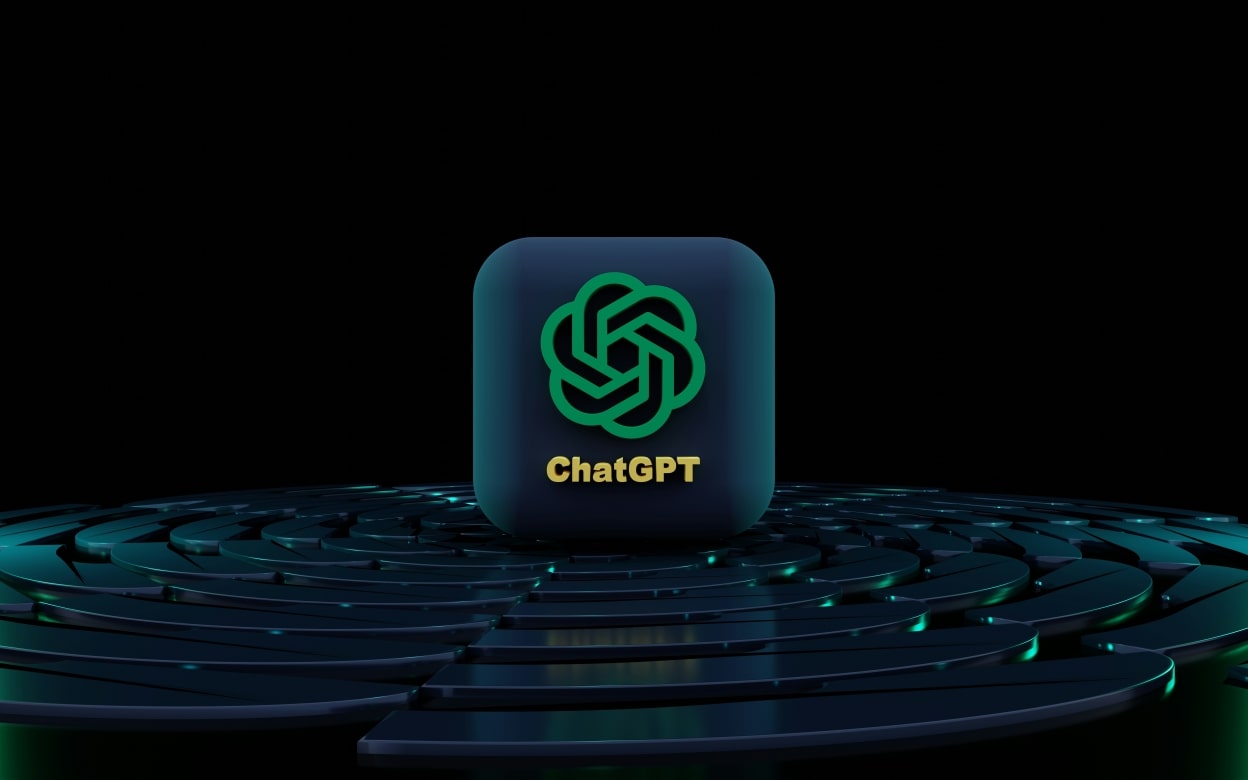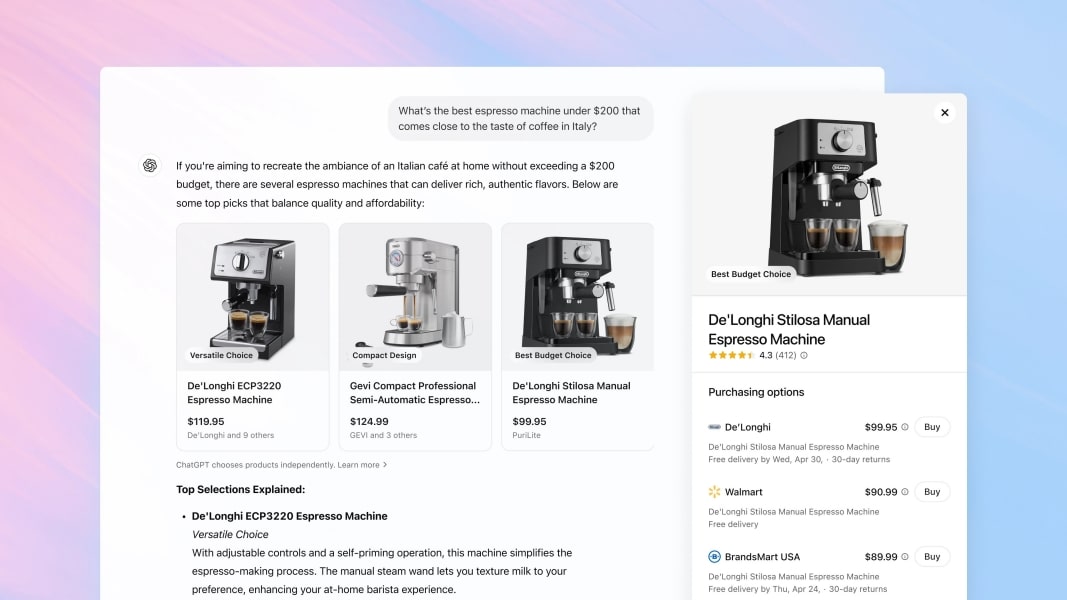ChatGPT shopping launches in Germany: Personalized product search without ads
Written by
Editorial TeamPublished on
ChatGPT shopping is now available in Germany, offering ad-free, AI-powered product search with personalized recommendations across electronics, fashion, home, and beauty.

OpenAI has officially launched ChatGPT shopping in Germany, introducing a new way to discover and compare products directly within an AI chat interface. Rolled out gradually since April 28, 2025, this feature blends artificial intelligence with e-commerce and is available to both paying subscribers and free users — even those without a login.
(Image Source: www.unsplash.com)
What sets ChatGPT shopping apart is its conversational interface. Instead of browsing through countless product pages or typing rigid keywords into a search engine, users can ask for items in natural language — such as “best espresso machine under 200 euros.” The AI responds instantly with curated recommendations, complete with images, descriptions, current prices, and direct purchase links to retailers like Amazon and MediaMarkt.
A seamless shopping experience inside the chat
Within the chat window, ChatGPT Shopping displays a range of relevant products along with multiple buying options. This allows users to compare offers and prices from different retailers at a glance — without switching between browser tabs. It offers the convenience of centralized search with the added benefit of real-time product data.
At launch, ChatGPT Shopping covers four main categories: electronics, household goods, fashion, and beauty. These were chosen based on typical user demand, and the system is designed to handle detailed product queries, follow-up questions, and preference-based refinements. Users can inquire about usage, warranties, or return policies — all within a fluid, AI-driven conversation. According to its official channel, every merchant or website can appear in ChatGPT search.
Personalized but privacy-conscious
The personalization capabilities of ChatGPT Shopping are a key feature. In supported regions, the chatbot remembers preferences like favorite brands or colors and incorporates them into future recommendations. It also pulls real user reviews and editorial test results from trusted sources across the internet — from online shops to forums like Reddit.
However, due to strict EU data privacy laws, personalization is currently disabled in Germany and across the EU. This means ChatGPT does not remember or use individual preferences for recommendations in these regions. Still, users benefit from comprehensive, well-sourced product suggestions that draw from structured data feeds (e.g. Schema.org), OpenAI’s web crawlers, and major shopping databases like Google Shopping and Amazon.
No ads, just unbiased results
Unlike traditional platforms such as Google, ChatGPT shopping does not show sponsored ads. All product suggestions are organically generated by the AI model without paid placements. This approach offers a more neutral user experience, free from commercial influence.
That said, OpenAI has not ruled out future monetization strategies. Industry experts anticipate potential affiliate partnerships or commission-based models, but for now, the company is prioritizing user trust and usability.

Mixed reactions and industry implications
The debut of ChatGPT shopping in Germany has sparked a range of responses. Many tech-savvy users appreciate the time-saving nature of the feature and its intuitive interface. However, questions remain about the transparency of product selection criteria, as the AI’s recommendation logic is not yet fully explainable — a challenge familiar from other algorithm-based systems.
Retailers and affiliate-driven websites are watching closely. If consumers begin making purchase decisions directly within the chat, traditional e-commerce platforms could see reduced traffic and commissions. OpenAI acknowledges this shift and is exploring ways to fairly include partners through initiatives like a merchant interest form, which allows retailers to submit their product catalogs for better discoverability within ChatGPT.
Expanding the role of AI in e-commerce
OpenAI has ambitious long-term goals. With a revenue target of $125 billion by 2029 (up from an estimated $4 billion in 2024), ChatGPT Shopping could play a strategic role in the company’s growth. Plans include expanding product categories, refining recommendation quality based on user feedback, and enabling direct merchant integrations through real-time product feeds.
Competition is also intensifying. Tech giants like Google are building AI into their own shopping search features, testing direct purchasing tools and AI-generated suggestions. For users, this means more choices and evolving tools that change how online shopping works.
Conclusion: A new era of AI-driven shopping
ChatGPT shopping marks a significant milestone in the convergence of AI and e-commerce. Now available to users in Germany, it offers a personalized, ad-free shopping experience that simplifies product discovery through intelligent conversation. Although its full personalization features are limited by EU regulations for now, the tool already delivers practical value with transparent, real-time product data. As AI continues to shape the future of digital shopping, ChatGPT Shopping is clearly positioned to be a major player in this transformation.
***


